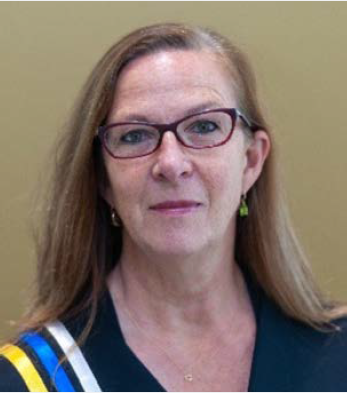Credits
Date of publication: November 2024
Australian Capital Territory
ISSN 2208–5335
Subject to acknowledgement, noting the ACT Judicial Council as author, extracts may be copied without the publisher’s permission.
Produced by the ACT Judicial Council, Canberra.
Design: Typeyard Design and Advertising Pty Ltd
Acknowledgement of Country
We acknowledge the traditional custodians of the lands and waters of the ACT and recognise any other people or families with connection to the lands of the ACT and region. We acknowledge and respect their continuing culture and the contribution they make to the life of this city and this region.
Contacting the ACT Judicial Council
Enquiries about this report or requests for other information should be directed to:
The Principal Officer
ACT Judicial Council
Post: GPO Box 1884, CANBERRA ACT 2601
Telephone: 02 5119 5550
Email: principal.officer@actjudicialcouncil.org.au
Website: actjudicialcouncil.org.au
The Judicial Council Annual Report 2023–24 is available on our website.
Contents
Welcome
Chief Justice Lucy McCallum, Head of Council
The Australian Capital Territory (ACT) Judicial Council (the Council) considers complaints about the behaviour or capacity of a judge of the ACT Supreme Court or a magistrate of the ACT Magistrates Court. The Council receives a small number of complaints from across the community. The Council’s complaint-handling role contributes to a fair and accountable judiciary for the ACT.
All complaints received in 2022-23 were from members of the public. No complaints were received from legal practitioners or referred to the Council by the ACT AttorneyGeneral.
I take this opportunity to thank my fellow Council members for their efforts this year, particularly Mr Martin Hockridge, for his dedication to the role of appointed legal practitioner from his appointment in February 2020 until his term ended in January 2023.
In addition, I also wish to acknowledge the work of the Principal Officer, Iain Anderson, and his staff in supporting the Council in the performance of its functions.
Council overview
The Council is established by operation of Part 2A of the Judicial Commissions Act 1994 (ACT) (the Act) and consists of the Chief Justice of the ACT Supreme Court, the Chief Magistrate of the ACT Magistrates Court, an appointed legal practitioner and an appointed member of the community. The Council is supported by a Principal Officer, Iain Anderson, who is the Commonwealth and ACT Ombudsman.
The Council can consider complaints about the behaviour and the physical or mental capacity of a judge of the ACT Supreme Court or of a magistrate of the ACT Magistrates Court. The Council cannot consider complaints about presidential members of the ACT Civil and Administrative Tribunal (ACAT). Complaints about ACAT presidential members may be made instead to the AttorneyGeneral.1
The Council’s functions include:
- receiving complaints about judicial officers
- examining complaints about judicial officers
- referring complaints to the ACT Executive or the relevant head of jurisdiction
- responding to enquiries about the complaint process.
The Council met 5 times in 2023–24.
Preliminary examination
When a complaint is received about an ACT judicial officer, the Council must conduct a preliminary examination. Depending on the outcome of the preliminary examination, the Council may take the following actions:
- early dismissal of the complaint
- referral of the complaint to the head of the relevant jurisdiction
- examination of the complaint by the Council.
The Council is required to conduct its preliminary examinations in private, where possible.
A preliminary examination includes a consideration of:
- information provided by the complainant
- any information provided in response by the judicial officer complained about
- transcripts and audio recordings of the relevant proceedings
- any relevant published judgments or sentences
- any other information the Council considers relevant.
Early dismissal
After conducting a preliminary examination of a complaint, the Council may dismiss the complaint under s 35B(1) of the Act if it is satisfied of one or more of the following:
- The complaint is frivolous, vexatious or not in good faith.
- The subject matter of the complaint is trivial.
- The matter complained about happened at too remote a time to justify further consideration.
- There is or was another satisfactory means of redress or dealing with the subject matter of the complaint.
- The complaint relates to the exercise of a judicial function or decision that is subject to appeal or review rights.
- The complaint is about a person who is no longer a judicial officer.
- The complaint is one that the Council is not required to deal with.
- Further consideration of the complaint is unnecessary or unjustifiable.
If the Council decides to dismiss a complaint for any of the above reasons, the judicial officer and the complainant will both be told of this outcome.
Even if it dismisses a complaint, the Council may take steps to address issues raised by the complaint, for example by advocating for a change of policy within the ACT Courts and Tribunal or additional education for judicial officers.
Referring a complaint to the head of jurisdiction
If, after a preliminary examination, the Council is satisfied a complaint is partly or wholly substantiated but does not justify the Council’s further attention by examination, the complaint may be referred to the relevant head of jurisdiction. The complainant will be notified of this outcome by staff assisting the Principal Officer.
The heads of jurisdiction in the ACT are the Chief Justice of the ACT Supreme Court and the Chief Magistrate of the ACT Magistrates Court, who are also members of the Council. The Council’s referral can include recommendations about what steps could be taken to deal with the complaint.
Examination by the Council
If the Council is satisfied after a preliminary examination that a complaint is partly or wholly substantiated, and it justifies further attention by the Council, the Council will proceed to conduct an examination of the complaint. In doing so, the Council must consider whether the complaint justifies parliamentary consideration of the removal of the judicial officer.
If the Council concludes that the complaint justifies parliamentary consideration, the Council must make a recommendation to the ACT Executive that it appoint a judicial commission to examine the complaint further.
If the Council considers the complaint does not justify its further consideration or parliamentary consideration, the Council will then refer the matter to the head of the relevant jurisdiction.
The complainant will be advised of the outcome of the examination.
The Council must conduct examinations in private, where possible. The Council must notify the ACT Attorney-General when it starts an examination and inform them of the outcome once it is finalised.
Lodging a complaint
Anyone can make a complaint to the Council, including members of the public, legal practitioners, and members of organisations such as the Law Society, Bar Association and Legal Aid. The ACT Attorney-General can also refer complaints to the Council.
There is no time limit for the making of a complaint, however the Council is unable to consider complaints about former judicial officers.
Complaints can be made by using the complaint form available on the ACT Judicial Council website or by sending the Council a letter or email.
Complaints must:
- be in writing
- provide the name and address of the person making the complaint
- identify the judicial officer who is the subject of the complaint, and
- provide details about the complaint.
The Principal Officer and staff receive complaints and enquiries on behalf of the Council. When a complaint is received, staff will tell the relevant judicial officer that a complaint has been made and give them an initial opportunity to comment. Staff will then help the Council to conduct the preliminary examination of the complaint. This includes obtaining and considering relevant transcripts, audio and any other information, and preparing a report for the Council’s consideration.
Complaints received
In 2023–24, the Council received 12 complaints from 10 individual complainants about 10 ACT judicial officers (additionally, 4 open complaints were carried over from the previous financial year).
This is consistent with the 11 complaints received in 2022–23. All complaints were made to the Council by members of the public. In 2023–24, consistent with previous years, most complaints (9 of 12) were received from self-represented litigants facing difficulties navigating court processes.
Complaints included allegations of bias, failure to give a fair hearing, discourtesy, incorrect application of the law, bullying and intimidation.
Complaints also included allegations of incorrect decisions. Where these allegations were made, the Council advised the complainants that they may wish to seek legal advice about their appeal options as the Council has no ability to examine the merits of, or change, a judicial officer’s decision.
Following a preliminary examination of the complaints, the Council decided to dismiss 9 complaints under s 35B of the Act, which allows for early dismissal of complaints. These 9 complaints included the 4 complaints carried over from the previous reporting period. One new complaint did not proceed to preliminary examination as the judicial officer complained about was no longer a judicial officer.
Each complaint is assessed carefully and thoroughly. When conducting a preliminary examination, the Council considers the information provided by the complainant, any response provided by the judicial officer, transcripts and audio related to proceedings and any other additional information from the court file that the Council considers to be relevant. In considering complaints, the Council has regard to the conduct expected of judicial officers, and applies guidelines including the Guide to Judicial Conduct, published for the Council of Chief Justices of Australia and New Zealand, Judicial Ethics in Australia, written by the Hon James Thomas AM, and other guidance published by Judicial Commissions including the Judicial Commission of NSW and the Judicial Commission of Victoria.
Most complaints are dismissed by the Council because, after a careful consideration of the complaint, the evidence available to the Council and the conduct expected of judicial officers, the Council is satisfied there is no basis for the complaint or is satisfied that there are other means of dealing with the subject matter of the complaint. Where someone has a complaint about the decision of a judicial officer, for example, it may be more appropriate to consider appealing the decision.
At 30 June 2024, the Council had 6 open complaints.
Table 1: Complaints received and finalised between 2017–18 and 2023–24.
| 2017-18 | 2018-19 | 2019-20 | 2020-21 | 2021-22 | 2022-23 | 2023-24 | |
|---|---|---|---|---|---|---|---|
| Complaints received | 12 | 12 | 8 | 7 | 6 | 11 | 12 |
| Dismissed after a preliminary examination (s 35B) | 12 | 7 | 8 | 4 | 6 | 8 | 10 |
| Referred to the head of jurisdiction (s 35C) | 0 | 2 | 2 | 0 | 0 | 0 | 0 |
| Examined by the Council (s 35D) | 0 | 1 | 0 | 0 | 0 | 0 | 0 |
| Withdrawn | 0 | 0 | 0 | 0 | 0 | 2 | 0 |
| Not considered – invalid complaint | 0 | 0 | 0 | 0 | 0 | 0 | 1 |
| Complaints finalised | 12 | 10 | 10 | 4 | 6 | 10 | 10 |
Enquiries received
In 2023–24, the Council received 39 enquiries from members of the public, separate to the 12 complaints. This is a significant increase on the 26 enquiries received in the previous reporting period. Several enquiries related to possible complaints where the person was seeking more information about the process, before deciding not to proceed. Most enquiries related to complaints about aspects of the court process that the Council has no jurisdiction to consider. In these instances, information was provided about other complaint pathways.
Council members
The Council consists of the ACT Chief Justice, the ACT Chief Magistrate, an appointed legal practitioner and an appointed member of the community.
Chief Justice Lucy McCallum: Chief Justice of the Supreme Court and Head of the Council
On 8 March 2022, Lucy McCallum was sworn in as the sixth Chief Justice of the ACT Supreme Court.
Her Honour attended the University of New South Wales (UNSW), where she graduated in 1986 with a Bachelor of Laws and a Bachelor of Arts, majoring in philosophy. She worked in Sydney as a solicitor in commercial litigation for 18 months at what was then Mallesons Stephen Jaques, before taking a position as a prosecutor in the ACT in 1988. In 1990, her Honour spent a year as a trial advocate with the Queensland Office of the Director of Public Prosecutions. She became a barrister in Sydney in 1991 and took silk in 2005.
In 2008, her Honour was appointed a judge of the Supreme Court of New South Wales in the Common Law Division. She was the Defamation List judge from 2014 to 2018. In 2016, her Honour was appointed Chair of the NSW Judicial Commission Ngara Yura Committee, which aims to increase awareness among judicial officers about contemporary Aboriginal and social-cultural issues and their effect on Aboriginal people in the justice system. In February 2019, her Honour was elevated to the New South Wales Court of Appeal, where she sat on a wide range of matters until her Honour’s appointment as Chief Justice of the Supreme Court of the Australian Capital Territory.
Chief Magistrate Lorraine Walker
Chief Magistrate Lorraine Walker holds a Bachelor of Arts and Laws from the University of Sydney. Her Honour was admitted as a solicitor in New South Wales in 1987, working briefly as an employed solicitor until joining the Royal Australian Air Force later that year. She served as a legal officer for 3 years in Melbourne and the Northern Territory before relocating to her birthplace – the United Kingdom.
Her Honour was employed by the Crown Prosecution Service as a prosecutor from 1990 to 1996. On returning to Australia, she practised as a solicitor in the ACT for one year before being made a partner in a national law firm. She started at the ACT Bar in 2000.
Her Honour was appointed to the ACT bench in 2010 with a dual commission as Coroner and Magistrate. She was subsequently appointed Chief Coroner and Chief Magistrate in 2011.
In August 2019, her Honour was appointed as an Acting Judge of the Supreme Court for 12 months to establish the ACT’s Drug and Alcohol Sentencing List but resumed as Chief Magistrate in April 2020, in light of the impact of COVID-19.
Philip Walker SC
Philip Walker SC was appointed to the Council as the legal practitioner representative in February 2023.
Philip was admitted as a barrister and solicitor in 1988. He worked at the ACT Government Solicitor from 1989 until 1998, ultimately as General Counsel. In 1998, he commenced private practice at the Canberra Bar in Blackburn Chambers.
Philip was appointed as Senior Counsel in 2013. He has extensive experience in public and commercial law. He has practical knowledge of both territory and federal legal practice. Philip is also a military lawyer, with both disciplinary and inquiry experience.
Philip was the ACT Bar Association president from 2010 until 2012.
From 2018 to 2024, Philip has been recognised in Doyle’s Guide as a leading Commercial Litigation and Dispute Resolution Barrister in the ACT.
Clare Doube
Clare Doube was appointed to the Council as the community representative in April 2021.
Clare resigned from the Council in April 2022, to run as a candidate to the Senate for the ACT in the May 2022 federal election. Following the outcome of the election, Clare was reappointed to the Council in August 2022.
Clare is a human rights consultant. Much of her work focuses on strategy and evaluation, across varied areas including social safeguards, criminal justice, civic space and gender. Clare is an Official Visitor for Corrections and a member of the Legal Aid Review Committee.
Clare has strong connections in the Canberra community, including through her past work as Executive Director of Companion House and through consultancies for ACT community organisations and the ACT Government.
The Principal Officer and supporting staff
The Council is supported by a Principal Officer. The Principal Officer is Iain Anderson
The Principal Officer and his staff are the point of contact for complainants. They facilitate communication between a complainant and the Council.
Iain Anderson, Principal Officer
Iain Anderson commenced his position as the Council’s Principal Officer on his commencement as Commonwealth and ACT Ombudsman on 1 August 2022.
Iain undertakes this role as one of his functions as the Commonwealth and ACT Ombudsman.
Before being appointed as Commonwealth Ombudsman, Iain spent 34 years working in a variety of roles across a range of legal and social policy areas in 6 different Commonwealth departments and agencies, including practising as a government solicitor. He was admitted as a solicitor in New South Wales in 1990.
Iain holds a Bachelor of Economics and a Bachelor of Laws from the University of Sydney.
David Fintan
David Fintan has assisted the Principal Officer to support the Council since May 2023.
David joined the Office of the Commonwealth Ombudsman as Senior Assistant Ombudsman in March 2021. David has more than 20 years' experience in the private and public sectors working in policy development, program design and implementation, corporate governance, program and risk management, enabling services and legal practice.
Before joining the public service, David was a lawyer for 15 years in private firms and in-house government roles, specialising in administrative and public law. David was admitted as a legal practitioner in the ACT in 2001.
Jennifer Furze
Jennifer Furze has assisted the Principal Officer to support the Council since February 2020.
Jennifer joined the Office of the Commonwealth Ombudsman in March 2019. She is an Assistant Director in the ACT Reportable Conduct and Freedom of Information team, in addition to her role assisting the Principal Officer.
Jennifer has previously held roles with the Department of Agriculture and Water Resources developing export control legislation and the Attorney-General’s Department working on Australian family law policy and international matters under the Hague Convention on the Civil Aspects of International Child Abduction.
Jennifer was admitted as a solicitor to the Supreme Court of the ACT in 2007.
1 Judicial Commissions (Complaints – ACAT Presidential Members) Approved Protocol 2017 (No 1)






